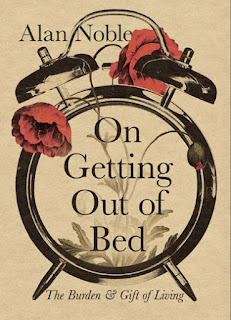"Emotional Abuse Recovery" by Martha McDowell. A Review
 Emotional Abuse Recovery: Healing Your Heart after Codependent and Emotionally Abusive Relationships: How to Handle Narcissists, Controlling, Manipulative, Toxic People and Take Your Life Back by Martha McDowell
Emotional Abuse Recovery: Healing Your Heart after Codependent and Emotionally Abusive Relationships: How to Handle Narcissists, Controlling, Manipulative, Toxic People and Take Your Life Back by Martha McDowellMy rating: 5 of 5 stars
Here we are in the middle of the COVID-19 outbreak. The numbers of infected are piling up, and restrictions on human movement is mounting. Some States are even imposing a “shelter-in-place” restraint. It’s all for the purpose of flattening out the growing infection rates and is meant for our good. But it’s in the middle of such hunkering down that another potential problem can rise. Strapped to homes and secreted away behind certain closed doors, there is a perfect environment for abusive people to rain down hurt on their victims with little to hold them back. That’s what makes Martha McDowell’s 128-page paperback, “Emotional Abuse Recovery” a well-timed and worthy read. The material is presented simply, and without technicalities. Anyone from 16 to 66 could read it profitably and knock it out in an hour or less, but what they gain will be immeasurable.
McDowell spends the first two-thirds of the book unpacking what emotional abuse is, how it fits into the larger abuse-dynamic or stands alone. She stresses that abuse can come from male or female partners, as well as parents of adult children, adult children toward parents, friends, and others. The author discusses the signs and traits of emotional abuse, the manipulative tricks abusers play – such as gaslighting, history-and-truth controlling, memory-manipulation, blame-shifting, etc.
The author also compares abusive traits to what is normal in healthy relationships, even when a partner has had a “bad day,” and how they differ. “A key element of emotional abuse is that an abuser will try to make you feel bad or guilty for the argument; they will tell you it was your fault. Take that as a red flag. A partner who has a bad day should be able to communicate when they have done something wrong without making you feel responsible for it. A good sign to look for is when they are blaming you for the abuse” (18).
McDowell piles on helpful guidance in what to look for, which assists friends of the abused and the abused in figuring out what is going on, why, and what to do. Therefore, the final third of the book is set up to contribute to the abusee’s recovery. Since many who have been abused have been “remade” into someone else, isolated, browbeaten, derided, etc. McDowell steers readers on ways to rebuild relationships, relearn how healthy communication looks and feels, restore empathy, and renovate social skills. It’s a valuable part of a recovery book.
“Emotional Abuse Recovery” is a fine book. It is a good resource for arming yourself with the traits of abuse, and what to look for. It would also make a great tool for counselors and ministers to use when they are counseling someone whose is being manipulated and oppressed by parents, spouses, pastors or siblings. I highly recommend the book.
My thanks to the author for alerting me to the book, and to Booksprout for the free e-copy of the book used for this evaluation. The only thing asked of me was that I write a review. Therefore, my assessment is freely written and freely given.
View all my reviews



Comments